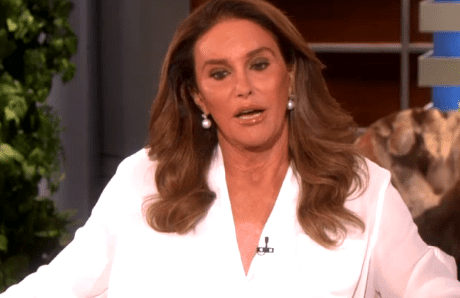 When Bruce Jenner came out officially as transgender, and eventually as “Caitlyn,” I was extremely happy for her, and for what it meant to the wider culture. For people like me, Bruce Jenner was an iconic sportsman — think Michael Jordan or LeBron James, only bigger. He was a decathlete. Think about that: The best all-around athlete in the world. Better at doing 10 sports than most people are at one or two. For younger people, he was the spacey patriarch of the Kardashian clan — not, to my way thinking, a very reputable role, but one that put him into countless homes for years.
When Bruce Jenner came out officially as transgender, and eventually as “Caitlyn,” I was extremely happy for her, and for what it meant to the wider culture. For people like me, Bruce Jenner was an iconic sportsman — think Michael Jordan or LeBron James, only bigger. He was a decathlete. Think about that: The best all-around athlete in the world. Better at doing 10 sports than most people are at one or two. For younger people, he was the spacey patriarch of the Kardashian clan — not, to my way thinking, a very reputable role, but one that put him into countless homes for years.
Coming out as trans meant that Jenner brought a lot of focus to issues of sexual orientation and identity. “Welcome to the party,” was my thought. Even when she claimed to be a conservative Republican, I said, “Now, now — let’s not ostracize her … yet. There are plenty of conservative (and racist, and ignorant) gays. Indeed, let her try to live as a trans woman in a GOP world. When she sees how slow John Boehner is to return her calls, maybe she’ll realize she was backing the wrong horse all the time.”
Some people objected when she won the Arthur Ashe Courage Award from ESPN, but I didn’t. This did require courage, to be known as a specimen of male physical prowess and say, “Yes, but I was a woman all along.” That’s not courage on the field, perhaps, but it showed a degree of character. Remember: Arthur Ashe, for whom the award was named, was given that honor because of his dignity in the face of adversity after acquiring AIDS. (Previous recipients include the family of a coach who was murdered who lobbied for protective legislation, Billie Jean King and Michael Sam.) It’s not like there’s this magical list of “courageous people” that gets ranked by the AP. It was an internal decision.
Then a few weeks ago, a friend of mine was lamenting what he considered an anemic lineup of celebriguests at Dallas’ upcoming Black Tie Dinner. “You know who they should get? Caitlyn Jenner,” he suggested.
I said, “Absolutely not.”
Because it is totally different than every other honor we have bestowed upon her.

Caitlyn Jenner, showing her true colors with Ellen.
Yes, it took courage to come out. Yes, she is a hero for many in the trans community. Yes, she is a popular figure. But this is the difference: The Black Tie Dinner is a fundraiser for a political organization, the Human Rights Campaign, which fights for political rights for the LGBT community. Not some esoteric concept of “courage.” Not a trade group (sports, TV) recognizing a member for something significant. The people who attend Black Tie Dinner are doling out money (a lot of it) to support a political action committee that fought (and fights) diligently for marriage equality, employment nondiscrimination and the like. And as Caitlyn’s appearance on The Ellen DeGeneres Show this week manifested, she’s not worthy of being included in that group.
Think about it: Among the speakers at this year’s Black Tie Dinner will be Jim Obergefell, the name plaintiff in the SCOTUS decision that made marriage equality the law of the land. Here is a man who stood up for the dignity he required to honor his husband. What, exactly, would the conversation in the green room backstage at Black Tie be like? Cait: “Pleasure to meet you Mr. Obergefell … I’ve only been part of the LGBT community for a few months, but I hear you spent years struggling to have your marriage recognized … I guess since it’s the law, I’m OK with that, but I’m a traditionalist who thinks ‘marriage’ should be between one man and one woman … By the way, do you know my friend Nino Scalia? I hear you’ve met.”
I found Cait’s Ellen interview interesting, but I think she still has a long way to go — not as a trans woman, not as a member of the LGBT community, but as a person. She has courage, I’ll give her that. But that’s what only the Lion was looking for. She needs to embrace the rest of the desires of the friends of Dorothy. When she has a brain and a heart, then we can talk again.
















